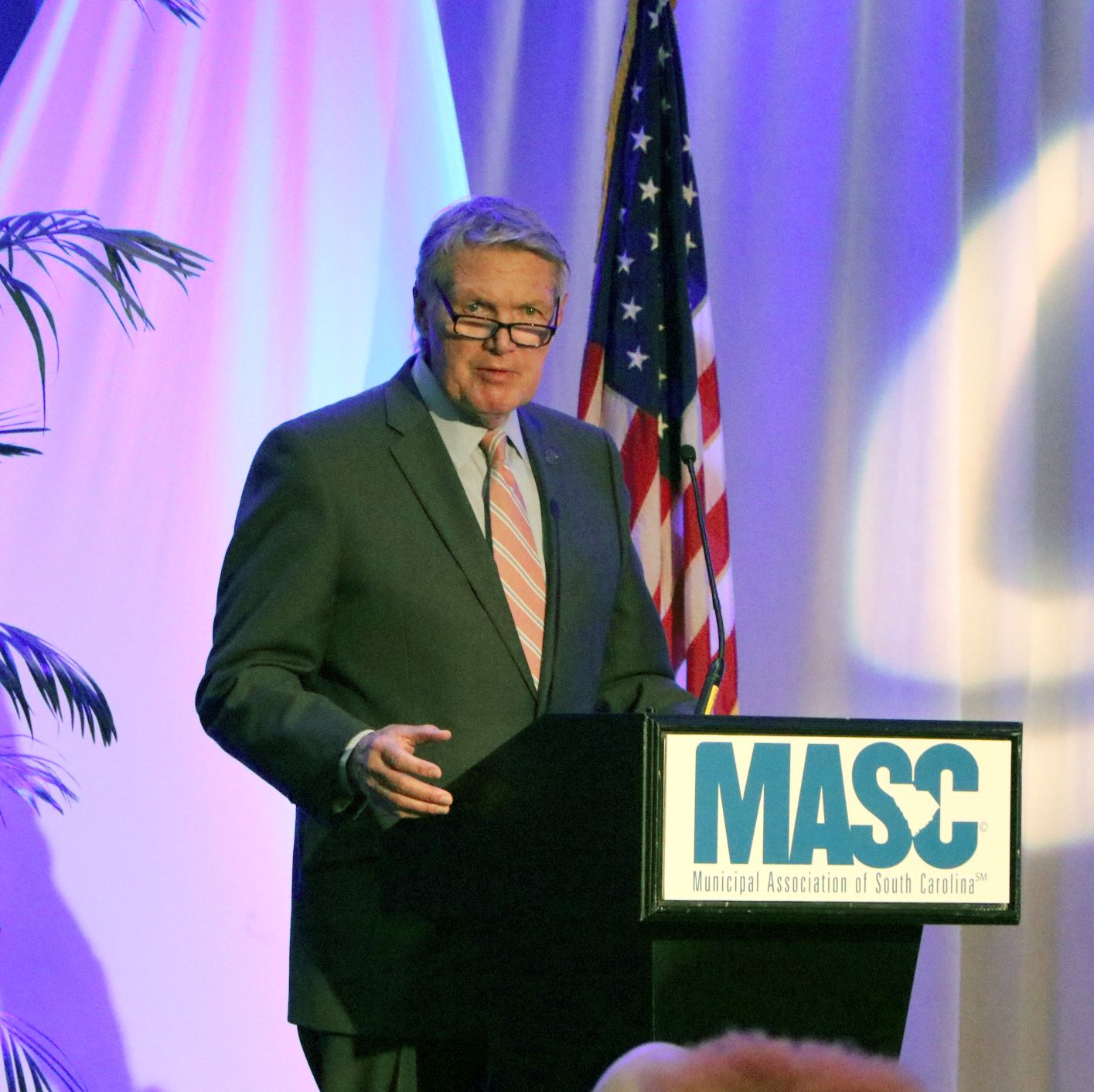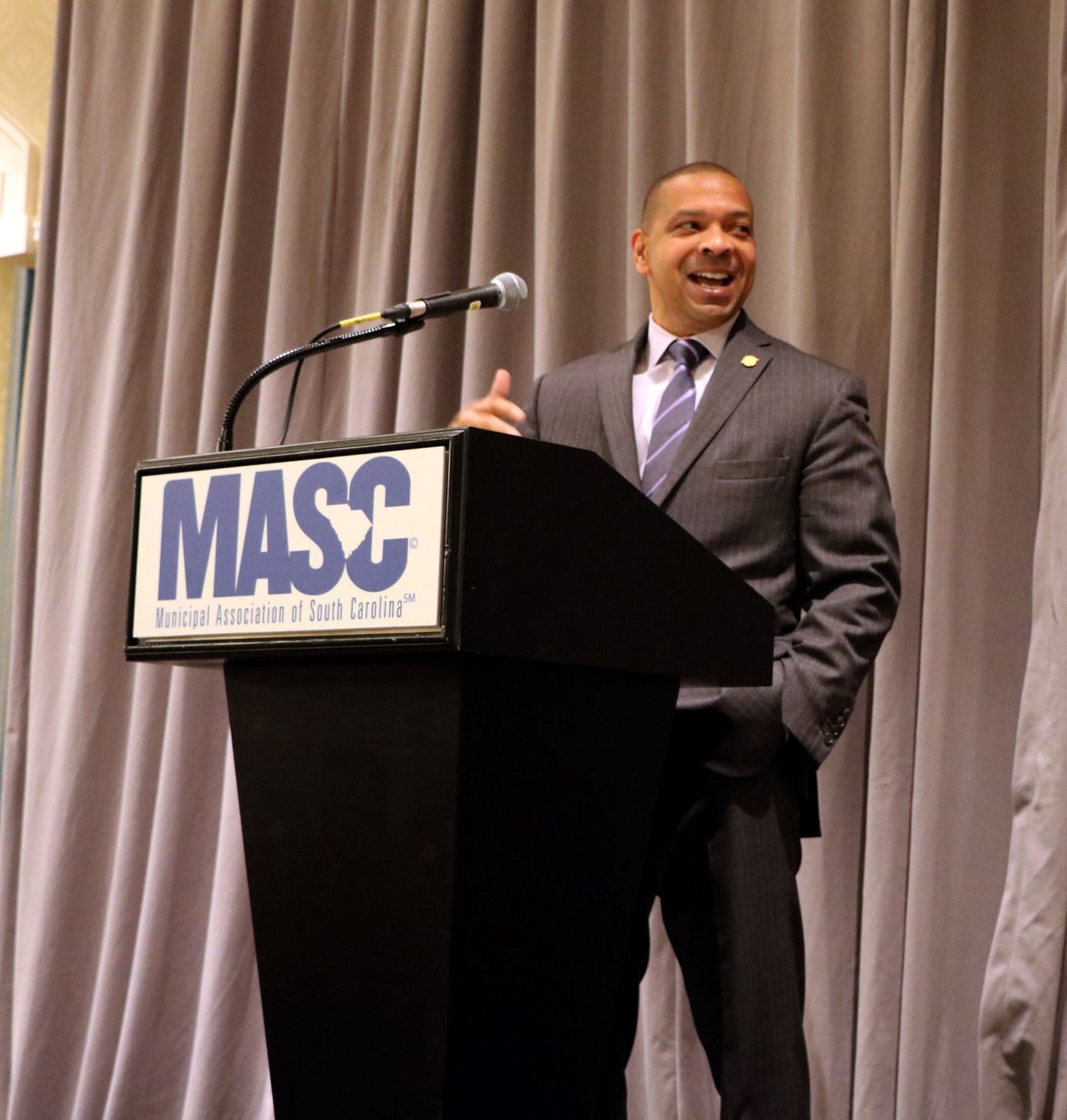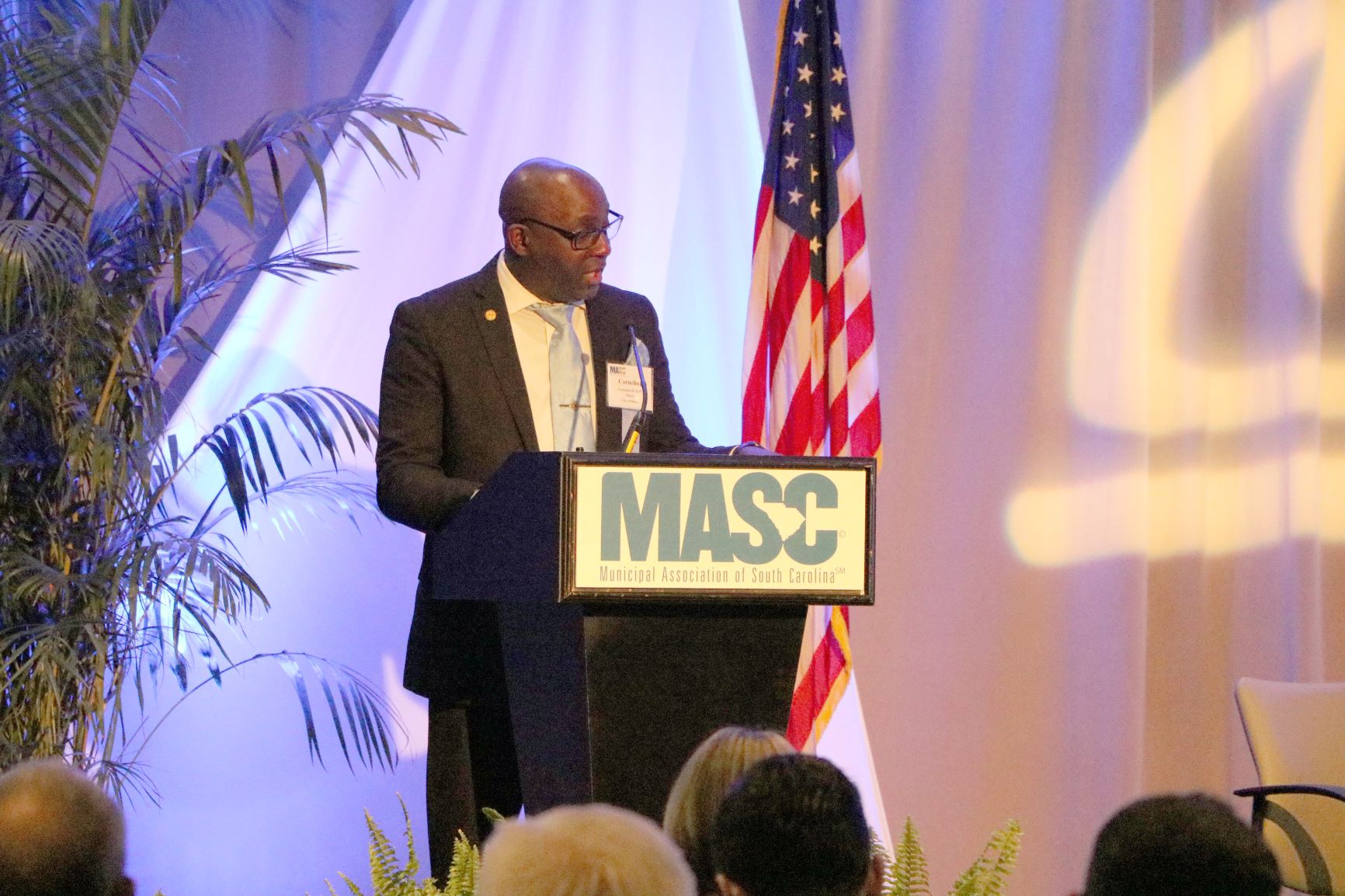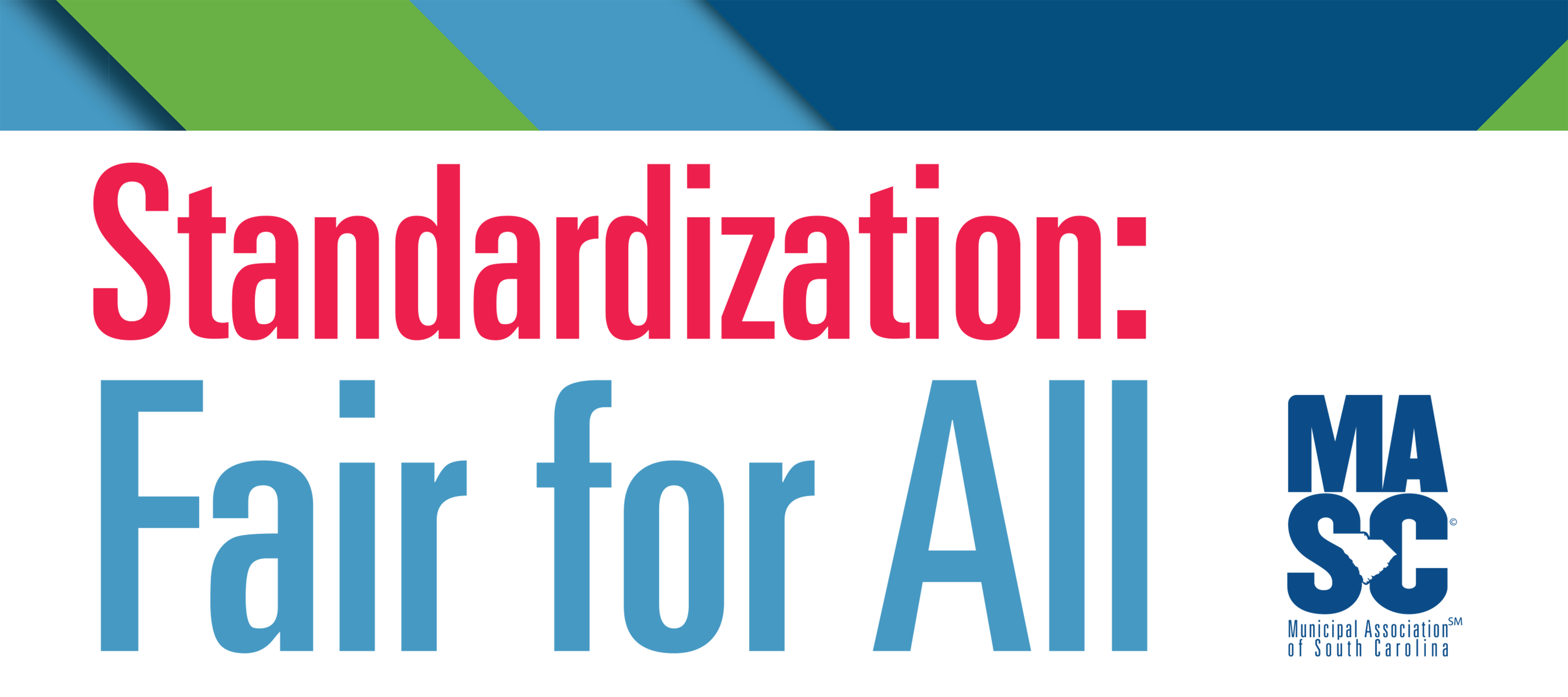Hometown Legislative Action Day Spotlights Business Licensing, Other Key 2020 Issues
Hometown Legislative Action Day on February 4 brought together about 475 representatives of cities and towns around South Carolina. They heard from state senators on many issues impacting the state and local level, most notably business license legislation. In the afternoon, they headed to the State House to engage with their delegations.

State Senate President Sen. Harvey Peeler
State Senate President Sen. Harvey Peeler gave the keynote address, calling attention to the importance of the relationship between the General Assembly and local officials. He outlined critical topics for the current legislative session, including education reform, the future of Santee Cooper and the $1.8 billion budget surplus, and closed with a reminder of the importance of the 2020 Census.
"If you're going to do one thing for your cities and towns, make sure that the people are counted," he said.
A senate panel discussion brought together Sens. Tom Davis, Shane Massey, Ronnie Sabb and Katrina Shealy. They dug into many of the same key issues as Peeler, and discussed the possibilities for H4431, the bill that would change the methods by which a business license tax is calculated, collected and enforced.

Sen. Marlon Kimpson
Sen. Marlon Kimpson spoke during lunch. He covered such topics as affordable housing as well as past and current legislative preemption efforts in areas such as wages, vaping and plastic bag bans.
"The reality is that the people on city council, and the people in Inman, Georgetown, Spartanburg, Greenville, and all the towns are in a better position than me to determine whether or not plastic bags are an issue in your jurisdiction," he said.
Cornelius Huff, mayor of Inman and president of the Municipal Association of SC, also touched on the value that local government brings when protecting residents and local businesses.

Mayor Cornelius Huff of Inman, president of the Municipal Association of SC
"We are the government closest to the people making decisions that affect our residents' basic quality of life every day. We are listening to the concerns from residents about plastic bags in creeks and rivers. We are listening to the concerns from residents about vape shops located near schools and churches," he said. "And guess what? We are taking action. We are answering those concerns with action and changes at the local level."
Municipal Association Executive Director Todd Glover discussed his experiences with the Municipal Association's legislative team since he came to the Association in late 2019. He noted that the advocacy staff is knowledgeable and experienced, but nonetheless encouraged local officials to take their concerns directly to their legislators.
"If you ask any of our advocacy team, they will tell you that there's nothing like a call from home," he said.
Both Glover and the legislative team focused on the message that business license standardization is a way to provide fair treatment to both businesses and cities. The message was summed up to the slogan, "Standardization: Fair for All," which appeared in handouts and stickers provided to HLAD attendees.

Glover discussed the ways that the Association has promoted business license standardization in recent years, leading up to the discussion on H4431 during the current session. The Association has promoted standardization of due dates as well as the passage of the model business license ordinance, which has happened in about 130 municipalities. The business license renewal portal recently developed by the Association is another key part. The software, currently being tested in the City of Greenwood and the City of Greer, will allow businesses to calculate what they owe to each municipality they operate in and submit a single payment.
Other HLAD sessions included "Place Branding and Economic Development," highlighting efforts in Charleston, Lake City and Travelers Rest. The SC State Election Commission provided a presentation on issues seen in recent election cycles and demonstrated the new voting system it began using in 2019. Articles covering both of these sessions will appear in the April issue of Uptown.
